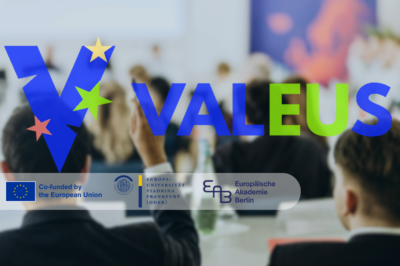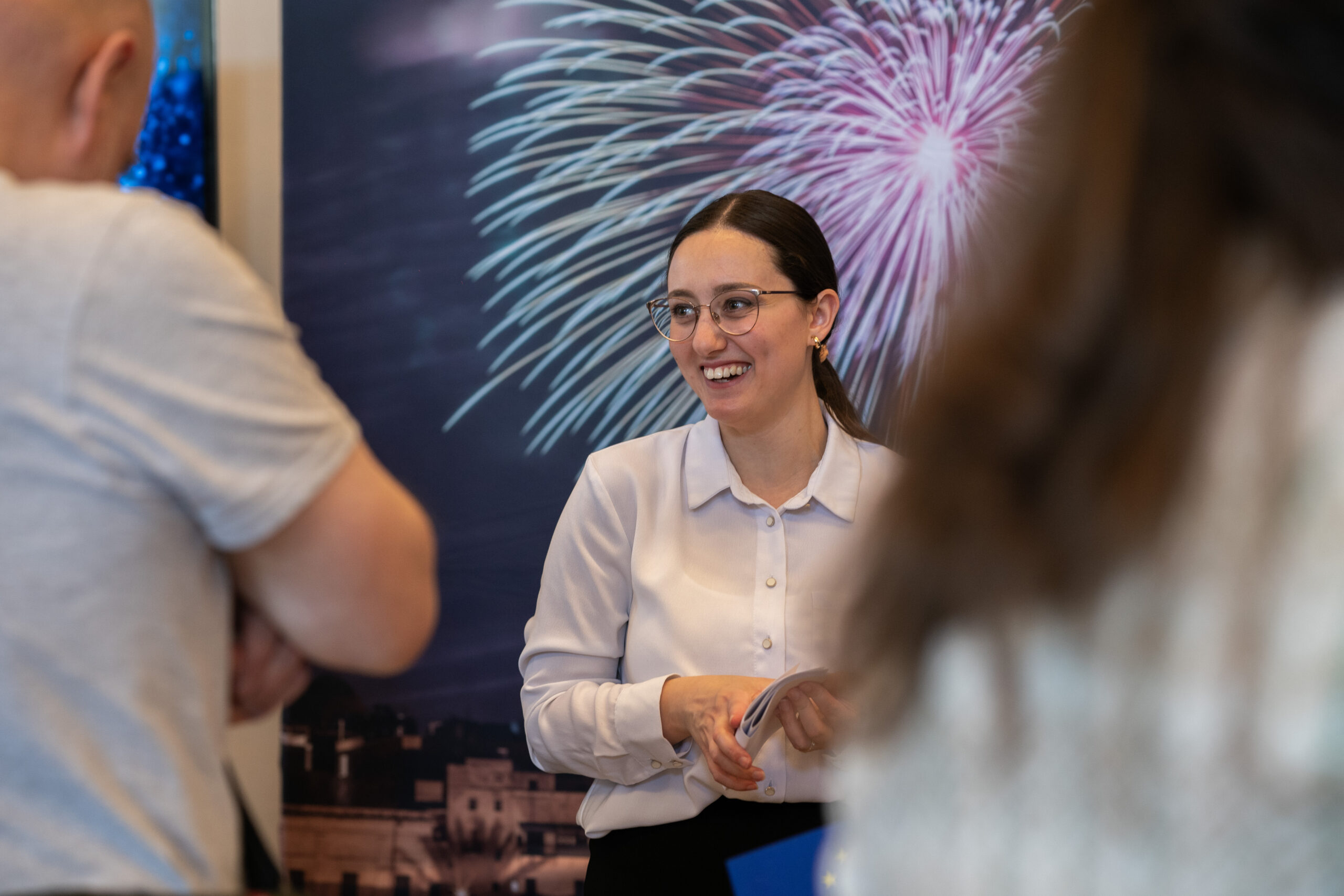ValEUs Policy Brief no. 3 – EU-Tunesia Migration Deal- A Threat to Core European Values (Paul-Hendrik Himmel, Charlotte Hölscher, Alaa Khal)

In this third issue of ValEUs Young Generation Policy Briefs, Paul-Hendrik Himmel, Charlotte Hölscher and Alan Khal state the EU-Tunisia migration agreement to expose contradiction between the EU’s migration policy and its core values of human rights and the rule of law. While aiming to curb irregular migration, the authors argue, EU cooperation enables human rights violations and supports a repressive security apparatus. This policy brief evaluates three options: EU withdrawal, which would weaken its credibility, a comprehensive migration policy reform, currently unfeasible, and a targeted revision of the agreement.
EU-Tunesia Migration Deal
– A Threat to Core European Values
By Paul-Hendrik Himmel, Charlotte Hölscher and Alan Khal
A publication by the Jean Monnet Policy Network “ValEUs”
No. 3 | 30 April 2025
Read the Full Issue (click on the image):

Executive Summary
The EU-Tunisia migration agreement exposes a contradiction between the EU’s migration policy and its core values of human rights and the rule of law. While aiming to curb irregular migration, EU cooperation enables human rights violations and supports a repressive security apparatus. This policy brief evaluates three options: EU withdrawal, which would weaken its credibility, a comprehensive migration policy reform, currently unfeasible, and a targeted revision of the agreement. The latter is the most viable, requiring strict human rights conditions, independent monitoring, and safe migration routes to align EU policy with its values and political interests.
//
About the authors:
Paul-Hendrik Himmel recently obtained a bachelor’s degree in the Viadrina’s “Law and Policy” programme. His interest in migration policy led him to the topic of his thesis, which dealt with the principle of non-refoulement in European law. In Frankfurt (Oder), Paul-Hendrik lives in an international, self-governed community.
Charlotte Hölscher is an international master’s student at the University of Padova on the Management of Sustainable Firms programme. As part of her studies, she completed an Erasmus semester at the European University Viadrina, where she dealt intensively with international economic and social issues. Having grown up in an international environment and been influenced by numerous experiences abroad, she developed a special interest in globalisation early on. For her, migration is not only a highly topical and socially relevant issue, but also one with far-reaching economic, social and political implications. Her academic background and personal experience enable her to migration and migration agreements from an interdisciplinary perspective.
Alaa Khal is a student at the European University Viadrina and a migrant himself. He has several years of experience in labour market integration and is intensively involved with migration policy at EU level, particularly in Germany. His focus is on the structural analysis of migration policy measures, which are often designed as short-term solutions without addressing the long-term causes. With two master’s degrees and over three years of professional experience in labour market integration, he has written numerous academic papers on this topic. He criticises the fact that, despite a considerable shortage of skilled workers, Germany sees migration as a problem rather than a win-win situation, and sustainable integration policy solutions. In addition to his academic and professional activities, he is in close contact with the migrant community and contributes practical insights to political debates on migration and integration policy.
About the Project
ValEUs brings together 20 universities from five continents, combining their strong expertise in EU studies across a wide range of academic disciplines. The Jean Monnet Network will foster joint research capacities, develop innovative teaching collaboration, and engage in societal policy debate to establish impactful policy recommendations. ValEUs is funded by the Erasmus+ programme of the European Commission (2024-2026).
Imprint
ValEUs. Research & Education Network on Contestations to EU Foreign Policy

Funded by the European Union. Views and opinions expressed are however those of the author(s) only and do not necessarily reflect those of the European Union or the European Education and Culture Executive Agency (EACEA). Neither the European Union nor EACEA can be held responsible for them.
Project number: 101127800
Email: contact@valeus.eu
Website: https://valeus.eu/
//
Die Rubrik EAB Impulse bietet Meinungen und Analysen zu aktuellen Entwicklungen in Europa. Die Beiträge spiegeln allein die Perspektiven der Autorinnen und Autoren wider und laden zum Nachdenken und Diskutieren ein. Weitere Informationen zur Arbeit der Europäischen Akademie Berlin und zu ihren Angeboten finden Sie unter:
Homepage: www.eab-berlin.eu | Newsletter: www.eab-berlin.eu/newsletter


